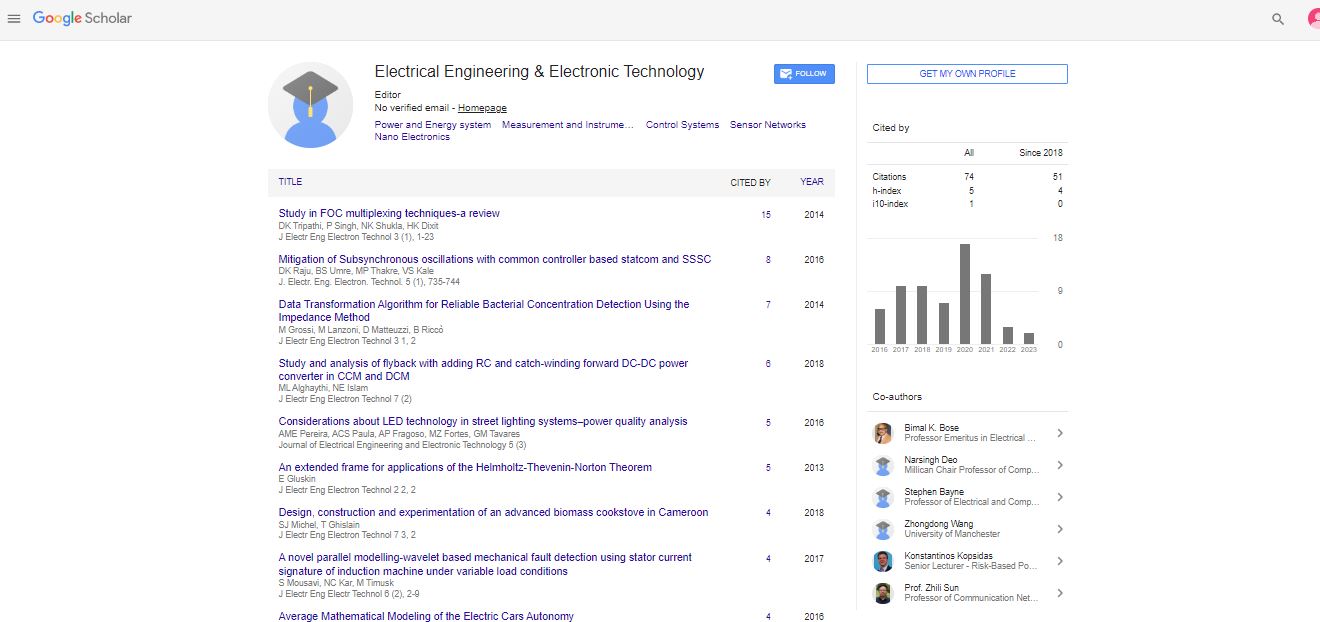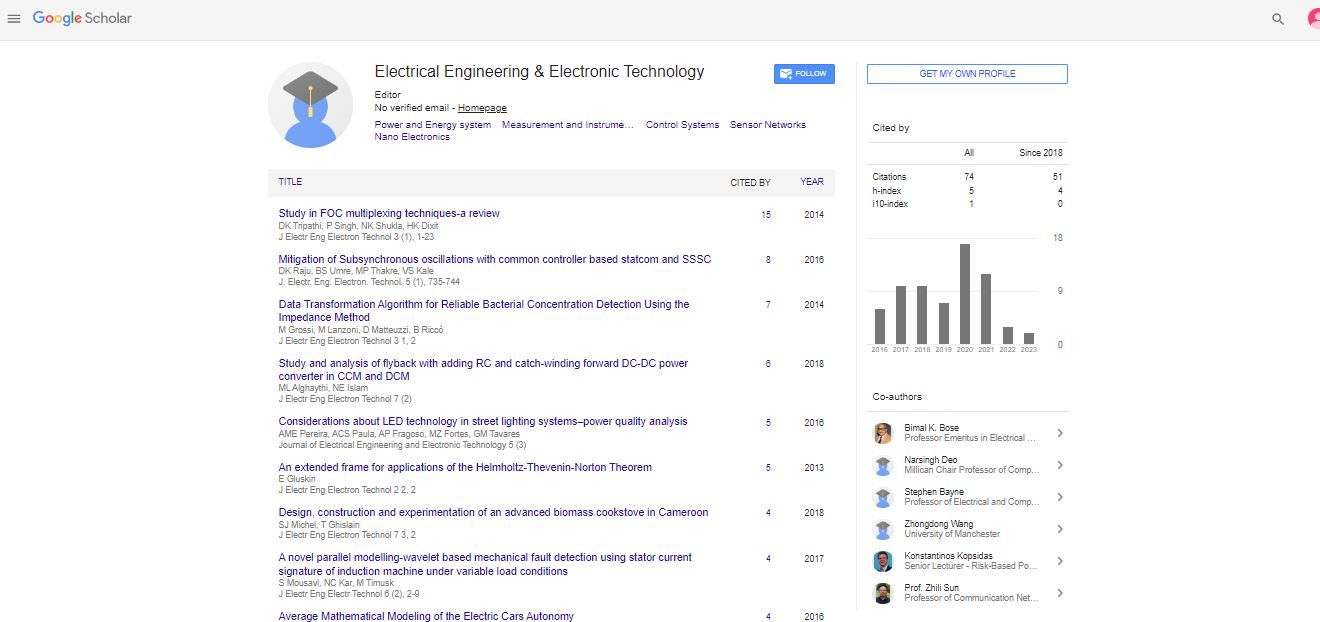Application of gold nanoparticles-dotted 4-nitrophenylazo graphene in a label-free impedimetric deoxynivalenol immunosensor
Christopher Edozie Sunday, Milua Masikini, Lindsay Wilson, Candice Rassie, Tesfaye Waryo, Pricilla G L Baker and Emmanuel I Iwuoha
University of Western Cape, South Africa
: J Electr Eng Electron Technol
Abstract
We report a new concept to construct a label-free electrochemical inhibition-based immunosensor for the detection of the mycotoxin deoxynivalenol (DON) in cereal samples. The electrochemical impedance spectroscopy of tris(bipyridine) ruthenium (II) chloride was used as a marker enhanced with gold nanoparticles-dotted 4-nitrophenylazo functionalized graphene (AuNp/G/PhNO2) nanocatalyst mediated in Nafion on a glassy carbon electrode. Under the optimized conditions, the formation of immunocomplexes inhibited electron flow and increased the charge transfer resistance of the sensing interface linearly. The change in impedance was proportional to DON concentrations in the range of 6–30 ng/mL with a sensitivity and detection limit of 32.14 ΩL/ng and 0.3 μg/mL, respectively, which compares favorably with the ELISA result. The proposed sensor had a stability of 80.3%, good precision and selectivity in DON standard solution containing different interfering agents, indicating promising application prospect for this strategy in designing impedimetric, electrochemiluminescent, voltammetric or amperometric sensors.
Biography
Christopher Edozie Sunday is a seasoned analytical chemist, science researcher and product quality control manager having multiple years of line production, laboratory and science research experience in the industry and academia. Presently employed as a full time Postdoctoral Research Fellow of Chemistry Department in University of the Western Cape (UWC) South Africa. He has published and co-authored many scientific articles in peer reviewed journals. His research focus involves the development of novel ultrasensitive polymeric and graphenated ‘smart’ nanomaterials for constructing enhanced performance super capacitors and lithium-ion batteries; electrochemical sensing platforms for the detection of mycotoxins in cereals and persistent polyaromatic pollutants in water. Associated research projects include application of the developed nanomaterials in the fabrication of DNA-aptamer based genosensors which are applied in real time tuberculosis disease diagnosis. This research is performed at UWC Sensor Laboratory in collaboration with the Medical Research Council (MRC) and Lung Infection/immunity Unit in University of Cape Town (UCT).
 Spanish
Spanish  Chinese
Chinese  Russian
Russian  German
German  French
French  Japanese
Japanese  Portuguese
Portuguese  Hindi
Hindi 
